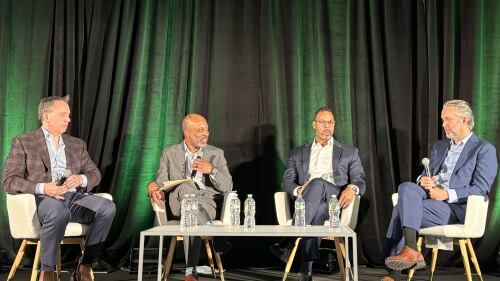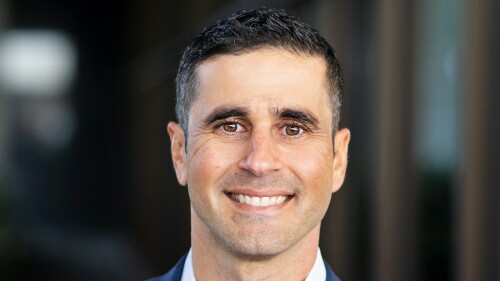Real estate companies are in a uniquely powerful position to promote diversity and inclusiveness, both within their own workforces and in the communities they develop, according to panelists at ULI’s 2018 Fall Meeting in Boston.
It is not just a matter of doing the right thing ethically, they noted. Camille Renshaw, chief executive officer and cofounder of B+E, a tech-driven brokerage and trading platform for net-lease real estate, said diversity and inclusion translate into better bottom-line performance and provide companies with a potent competitive advantage, especially when it comes to attracting the best talent.
Renshaw, who closed $5 billion in transaction volume in the past year, cited the example of a broker who chose to work for B+E instead of accepting an offer from a large firm where he had previously worked, because he felt that at B+E, he did not have to conceal his sexual orientation from clients.
That sort of comfort level with an employer is particularly crucial when it comes to younger workers, Renshaw said. She said that with millennials, it is no longer enough to provide work/life balance. “You have to have work/life integration,” she said.
Renshaw, who previously worked as head of sales for Ten-X, a Google Capital company that is a leading online marketplace for commercial real estate, pointed to the industry’s glaring gender disparities as a business opportunity. She noted that women earn a median of $115,000 in compensation, compared with $150,000 for men. (Those numbers come from a 2015 study by the Commercial Real Estate Women Network.) As a result, companies that are willing to offer women a fair deal have a competitive advantage in acquiring talent.
Renshaw also cited research showing that companies with higher percentages of women on their boards of directors substantially outperform businesses that do not have women directors. She also said that revenues from innovation tend to rise as the share of female managers increases.
“This is how to make money—bring diversity of thought into your leadership,” Renshaw said.
Renshaw said that corporate culture can have a bigger impact upon a company’s fortunes than strategy does. While a new business direction can be hammered out in a week’s worth of meetings, “it really takes a long time to fix a broken culture,” she said. “And it can cost you a lot of money.”
Renshaw said that making a company more inclusive requires leaders to confront the issue head-on when they talk to employees, and not to worry about things such as whether they use the preferred terminology for a gay spouse. Workers will respond to the openness of the discussion, she said. “Be humble in the dialogue,” Renshaw urged.
After Renshaw urged the real estate industry to build more diversity from within, another speaker urged it to build more diverse and inclusive communities.
Tiffany Jana, founder and chief executive officer of TMI Consulting, a diversity, equity, and inclusion management consulting firm based in Richmond, Virginia, recounted her own experiences as an impoverished single mother living with her children in substandard housing. “I came dangerously close to being evicted,” she recalled.
Jana said that real estate developers could have an enormous impact by “creating places that are accessible to the least of us.”
But doing the right thing for communities requires facing up to unconscious biases—“the things that cause you to treat people unfairly”—which afflict even those of us who see ourselves as essentially good, according to Jana. Once a person gains that insight, “you have a responsibility to do something about it,” she said.
Jana found fault with a status quo in which “a third of our country is spending 30 percent of their income on housing . . . and that’s the people who are surviving and doing okay.”
But she encouraged the audience not to become so discouraged by the scale of societal problems that they become paralyzed and ineffectual. “Don’t look at it as one big problem that you can’t attack,” she said. “Scale it down to what you can do . . . there are small decisions that you can make every day.”



![Western Plaza Improvements [1].jpg](https://cdn-ul.uli.org/dims4/default/15205ec/2147483647/strip/true/crop/1919x1078+0+0/resize/500x281!/quality/90/?url=https%3A%2F%2Fk2-prod-uli.s3.us-east-1.amazonaws.com%2Fbrightspot%2Fb4%2Ffa%2F5da7da1e442091ea01b5d8724354%2Fwestern-plaza-improvements-1.jpg)

